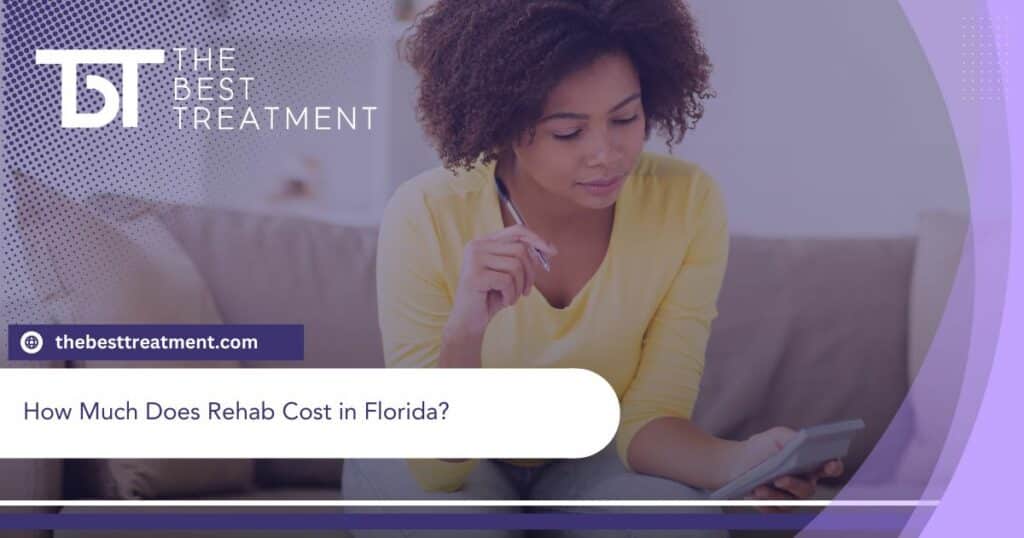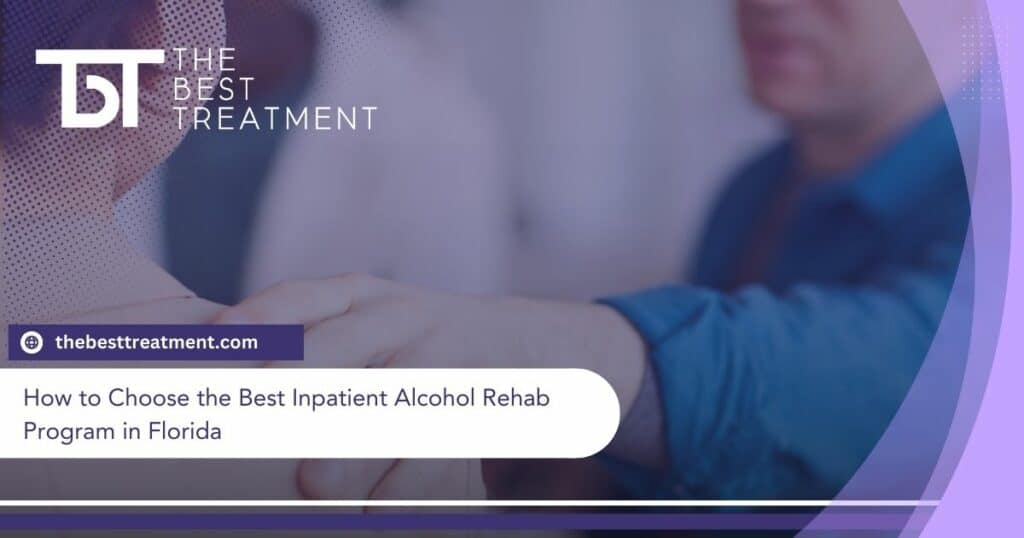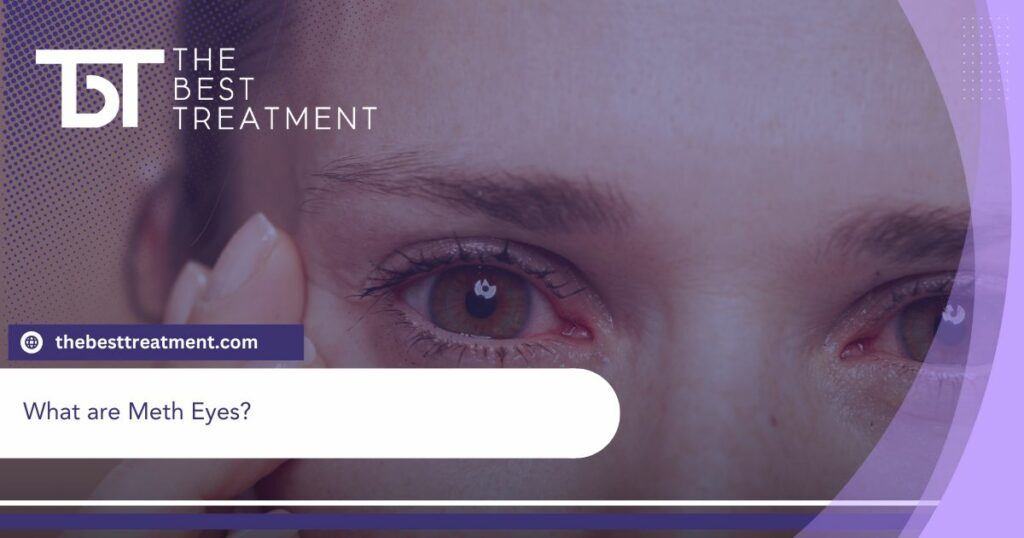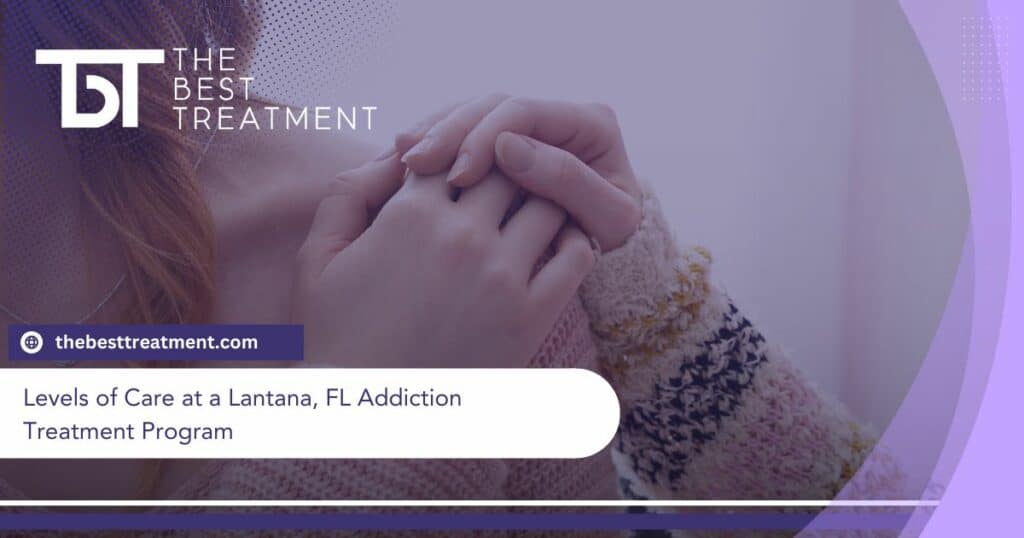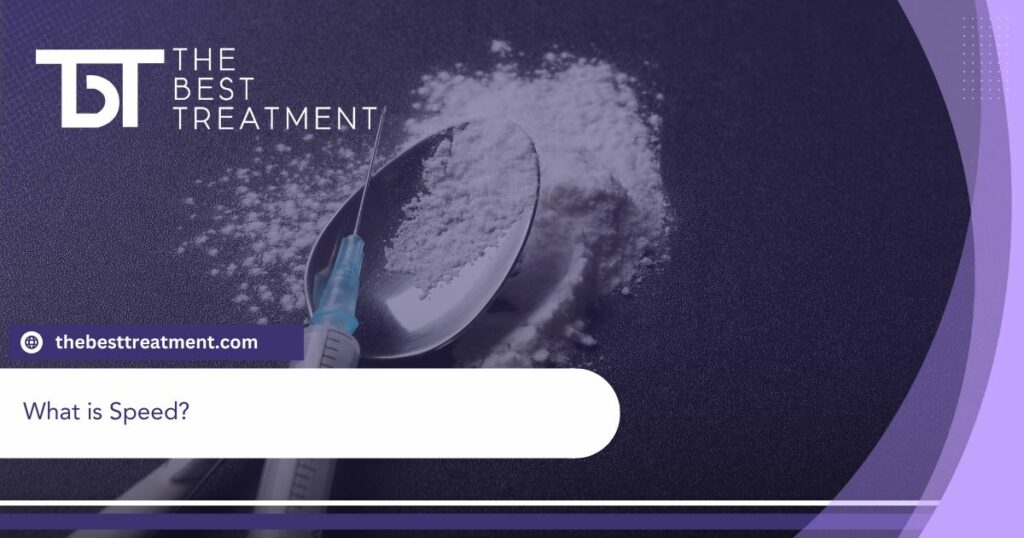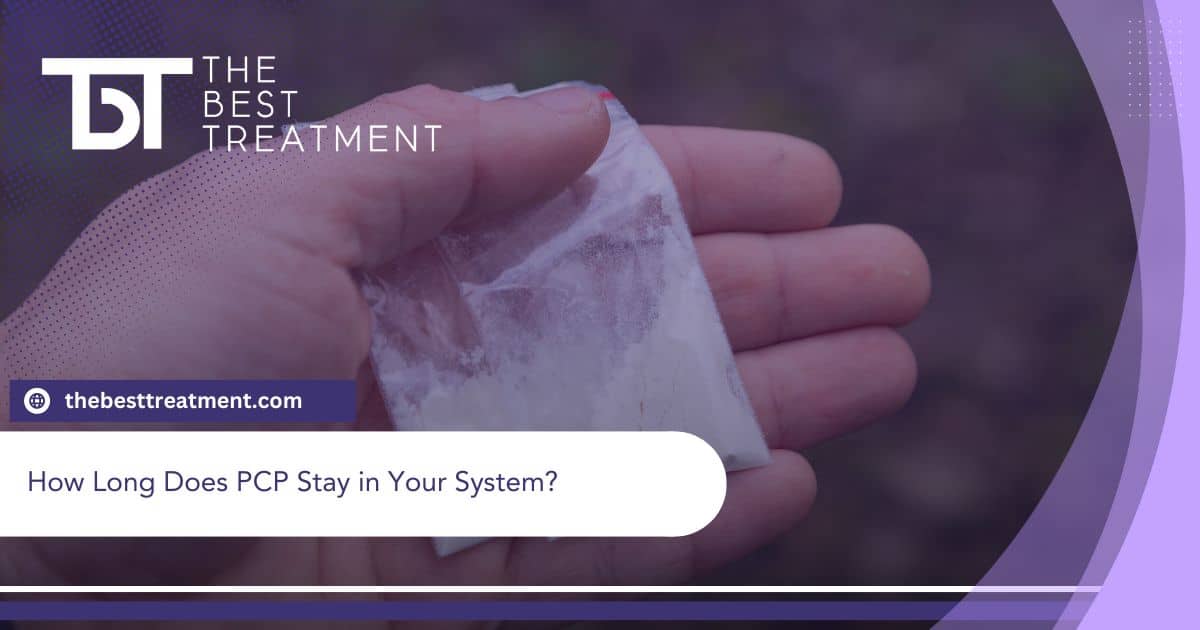Table of Contents
Phencyclidine, also known as PCP, is a hallucinogenic drug that became popular in the 1960s and 70s due to its dissociative and psychedelic properties. It is often referred to as “Angel dust” or “Sherm.” Available in liquid and powder forms, PCP is typically smoked, but it can also be injected or snorted.
PCP has a fairly dangerous side effect profile and may cause damaging long-term effects including psychosis, seizures, catatonia, coma, and death. As a result, the United States Drug Enforcement Agency (DEA) has labeled it as a Schedule II Controlled Substance, indicating a significant risk for abuse and addiction. It is estimated that about 6 million Americans ages 12 and older have abused PCP at some point in their lives.
A high from PCP can last anywhere from four to eight hours, but it can stay in your system for several days or weeks. If you or a loved one are struggling with PCP abuse, please reach out to our team at The Best Treatment Center to discuss your treatment options.
How Long Do the Effects of PCP Last?
People who use PCP often report feelings of increased confidence, feelings of powerfulness, altered perception of time, dissociation, pain relief, increased libido, and euphoria. It is often combined with other drugs, like tobacco or cannabis products, so the exact physical and psychological effects may vary. In high doses, PCP can cause powerful hallucinations and feelings of “super-human strength.” It may also cause confusion, paranoia, aggression, suicidal thoughts, and disorientation.
Long-term PCP abuse can take a serious toll on the mind and body. It may result in memory loss, psychosis, mental health issues, respiratory problems, high blood pressure, and cognitive impairment.
PCP is very fast-acting, and the effects can appear in as little as 15 to 30 minutes after taking it. When injected, the effects can appear within seconds. The effects may begin wearing off between 4 and 8 hours after taking the drug. However, some people report having lingering effects for a day or two after use.
PCP Metabolism and Half-Life
When PCP enters the body it is absorbed by the gastrointestinal tract or the lungs and into the bloodstream where it is then distributed throughout the body and brain. The drug is metabolized in the liver through a process in which various enzymes break PCP down into several metabolites that are eliminated from the body via urine, feces, sweat, and breath.
There are several factors that affect how quickly PCP is metabolized and how long it lasts including the drug’s half-life. Half-life is a measure of how long it takes the body to break down (metabolize) half of a single dose of a substance. For the average person, it takes 4-5 half-lives for a drug to leave the system.
PCP’s half-life is anywhere from 7-46 hours with the average being 21 hours. Based on this half-life, it can take anywhere from 1.5 days to 10 days to get the PCP out of your system.
PCP Detection Times in Urine, Blood, Saliva, and Hair
There are several different types of drug tests that can detect PCP, each with a different detection window. Below are estimates regarding PCP detection by various drug test types.
Urine Tests
Since urine tests are affordable, accurate, and minimally invasive, they are the most common type of drug test. These tests are often used as a part of pre-employment screening, parole hearings, and healthcare procedures. A urine test can detect PCP for 7-14 days after the last dose.
Blood Tests
Blood tests are performed by analyzing a blood sample. This type of test is only used in healthcare settings, often to confirm intoxication. Blood tests for PCP can detect the substance for 24 to 48 hours after the last dose.
Saliva Tests
Saliva tests are used less frequently than urine and blood tests, but they can detect PCP for up to three days after the last dose.
Hair Tests
Hair tests, although considered less accurate than other test types, provide a very long detection window. PCP and other drugs can be detected in the hair for up to 90 days.
Factors that Affect How Long PCP Stays in Your System
How quickly PCP leaves the system varies from person to person. There are many factors that affect metabolism, drug elimination rates, and drug test results. These factors include:
- Dosage – Taking higher doses of PCP can cause it to accumulate in the body’s tissues and cells, leading to longer detection times.
- Frequency of use – Using PCP more frequently or for longer periods can cause it to stay detectable in the body longer.
- Metabolism – Metabolism can vary based on overall health, age, weight, and genetic factors. People with faster metabolisms are able to break down and eliminate PCP from their system more quickly.
- Health conditions – Certain health factors, including kidney function and liver function, can influence how long it takes the body to break down PCP. People with liver or kidney problems may take longer to break down substances.
- Hydration and diet – Hydration is an important part of the body’s detox process. Drinking plenty of water and staying hydrated helps flush toxins out of the body more quickly. Similarly, eating a balanced and nutritious diet can help boost metabolism and overall health, thereby speeding up drug elimination times.
How to Detox From PCP
If you or someone you love are addicted to PCP, you may experience unpleasant withdrawal symptoms when you stop taking it. Common symptoms of PCP withdrawal include:
- Depression
- Anxiety
- Insomnia or disturbed sleep
- Irritability
- Fatigue
- Cravings
- Psychotic symptoms
- Physical symptoms (headaches, muscle aches, tremors, sweating)
- Cognitive difficulties (memory, concentration, decision-making)
- Increased appetite
The safest way to detox from PCP is under medical supervision. Medical detox centers have doctors on staff who can prescribe medications to control withdrawal symptoms and nurses who can monitor your withdrawal process. Most often, benzodiazepines are used to treat the anxiety and potential seizures caused by PCP withdrawal. A benzodiazepine taper involves gradually reducing the medication’s dose until withdrawal symptoms subside.
After detox, treatment for PCP addiction involves counseling, behavioral therapy, and peer support groups. Therapies like cognitive behavioral therapy (CBT) can help individuals develop the behavioral changes and coping skills they need to stay sober. During treatment, any co-occurring psychological conditions should also be addressed.
Find Help Now
If you or a loved one are struggling with PCP addiction, please know that effective treatment is available. The Best Treatment Center offers several levels of care, ranging from detox and inpatient rehab to PHP and IOP. Our expert team customizes each person’s treatment plan to meet their unique needs, and our admissions team is available now to help you get started. To verify your insurance and get started with a confidential, risk-free assessment, please contact us today.
Medically Reviewed: September 25, 2019

All of the information on this page has been reviewed and verified by a certified addiction professional.





